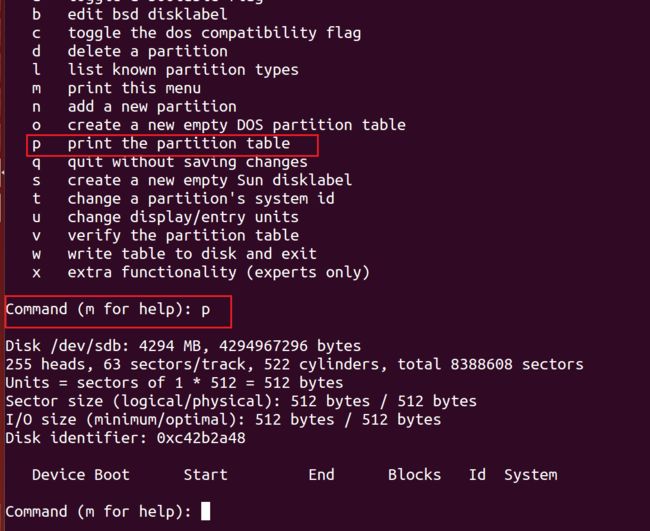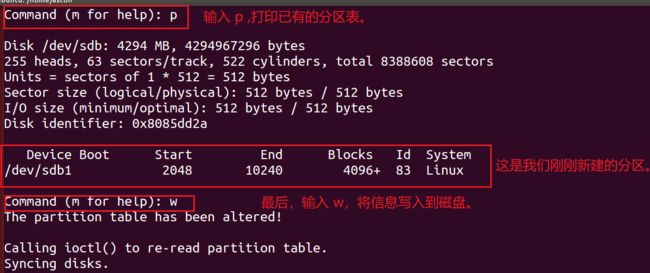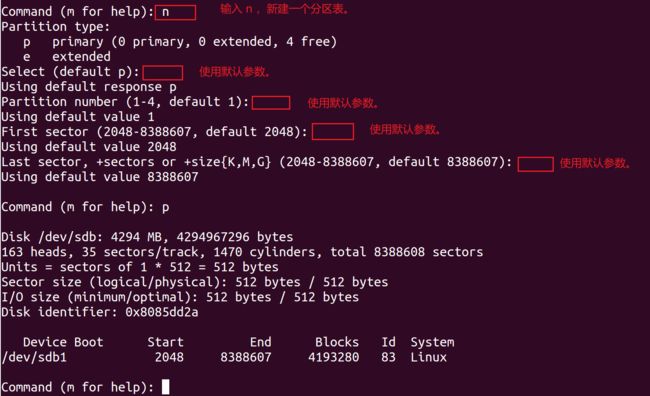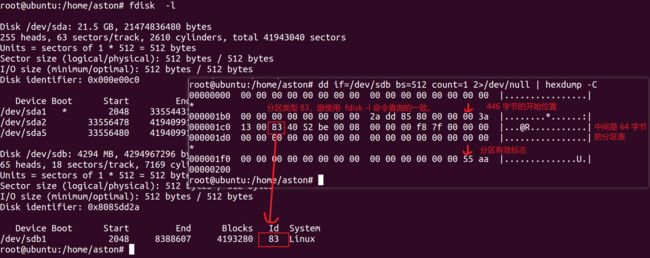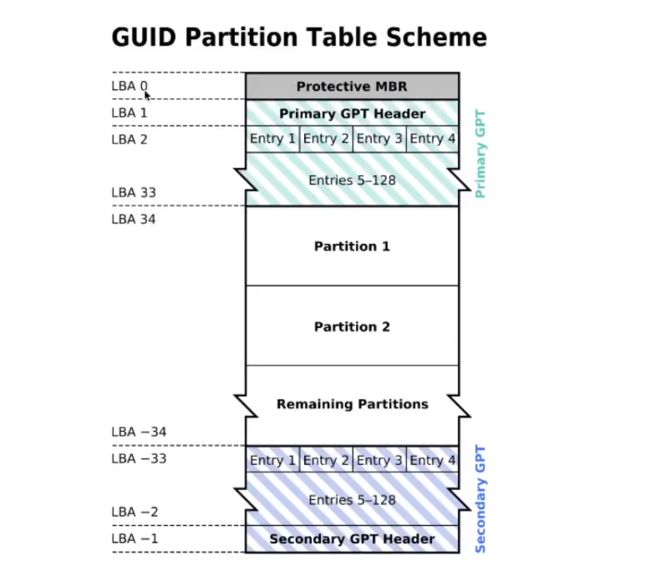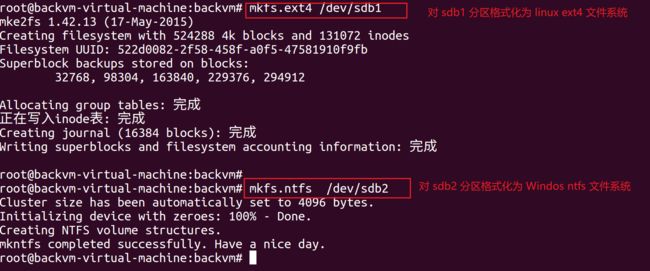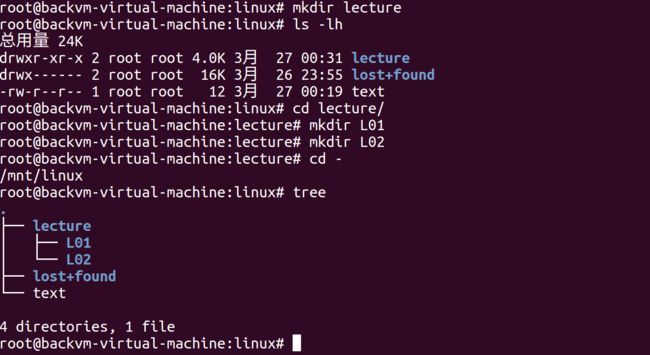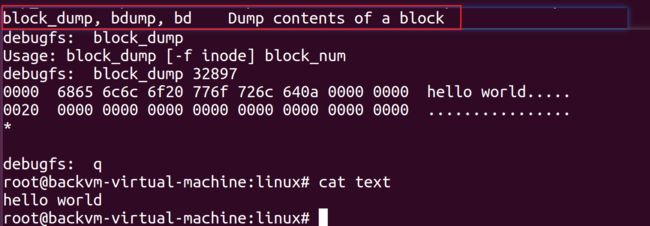Linux 格式化磁盘,制作文件系统 => 报错: dev/sdb is NOT identified.
前言
在学习 ARM S5PV210 开发板的时候, SD 卡烧录时总是失败,报错信息:
dev/sdb is NOT identified.
经过实践,发现格式化 SD 卡可以解决该问题;或者使用命令 ls /dev/sdb 发现 sdb 块设备的文件类型不是 b(块设备),此时 rm -rf /dev/sdb 删除,然后重新插入 SD 卡,也能解决问题。
一、准备工作
1. 转换成 root 身份:
ubuntu:~$ sudo su
# 之后输入 root 用户密码
# 如果没有 root 用户/密码,可以使用下面的命令添加 root 用户/密码
ubuntu:~$ sudo passwd root
Enter new UNIX password:
Retype new UNIX password:
passwd: password updated successfully
ubuntu:~$
2. 查看当前系统的磁盘数据
root@ubuntu:/home# fdisk -l
Disk /dev/sda: 21.5 GB, 21474836480 bytes
255 heads, 63 sectors/track, 2610 cylinders, total 41943040 sectors
Units = sectors of 1 * 512 = 512 bytes
Sector size (logical/physical): 512 bytes / 512 bytes
I/O size (minimum/optimal): 512 bytes / 512 bytes
Disk identifier: 0x000e00c0
Device Boot Start End Blocks Id System
/dev/sda1 * 2048 33554431 16776192 83 Linux
/dev/sda2 33556478 41940991 4192257 5 Extended
/dev/sda5 33556480 41940991 4192256 82 Linux swap / Solaris
root@ubuntu:/home#
一般的,sda 盘就是 Linux 操作系统文件所在的那个盘。
我们可以验证下,sda 一个扇区是 512 bytes,总共 41943040 sectors 扇区,因此 sda 硬盘的总空间就是: 512 x 41943040 = 21,474,836,480 bytes,刚好和 fdisk -l 命令统计的数据一样。
底部的 device 信息详解:
- /dev/sda :第 a 块硬盘。
- /dev/sda1 :第 a 块硬盘设备的第 1 个分区。
- Boot:是不是启动分区。
- Start:起始的扇区号。
- End:最终的扇区号。
- ID:分区类型的编号(83 对应 Linux)。
- System:分区类型编号对应的文字描述。
3. 关闭虚拟机,在虚拟机控制台增加一个硬盘。
4. 重启虚拟机,再利用 fdisk -l 命令观察数据变化。
二、MBR 分区
1. 为了消除 “Disk /dev/sdb doesn’t contain a valid partition table” 的警告,我们需要为 /dev/sdb 硬盘创建一个分区表。
将 /dev/sdb 硬盘设置为 MBR 分区(disklable type),并创建一个分区。
2. 使用 fdisk /dev/sdb 命令,对该硬盘做操作;输入 “m” 可以看到命令帮助信息。
输入"l" 列出支持的分区类型。
输入 “p”, 打印当前已有的分区表。
输入 “n”,新建一个分区。
最后输入 “w”,保存信息到硬盘。
以后输入 fdisk -l 命令,就没有那个 “Disk /dev/sdb doesn’t contain a valid partition table” 的警告了。
3. 为了系统地分析硬盘分区表,我们重新对 /dev/sdb 硬盘重新新建一个分区。
分区的起始扇区号为 2048,前面 0 ~ 2047 扇区为保留扇区,第 0 号扇区为 MBR。
先输入 w,保存我们设置的硬盘分区信息。
观察 /dev/sdb 是否符合 MBR 的特征:主引导记录(MBR)是硬盘驱动器上的第一个扇区,MBR 包含引导程序代码(440字节),可能还包含其他一些信息,紧接着是 64 字节的分区表和一个 2 字节的引导签名。64 字节的分区表有 4 个 16 字节的条目,从偏移量(446,即 1BEh )开始。下表给出了每个 16 字节条目的布局。
| 偏移量(十六进制) | 长度 | 描述 |
|---|---|---|
| 0h | 1 | 状态。80h表示活动(或可引导)的分区。 |
| 1h | 3 | 分区中第一个绝对扇区的CHS(柱面-磁头-扇区)地址 |
| 4h | 1 | 分区类型。 |
| 5h | 3 | 分区中最后一个绝对扇区的CHS(柱面-磁头-扇区)地址 |
| 8h | 4 | 分区中第一个绝对扇区的逻辑块地址(LBA)。 |
| Ch | 4 | 分区中的扇区数量 |
root@ubuntu:/home/aston# # 通过下面的命令,将MBR以16进制形式打印出来
root@ubuntu:/home/aston# dd if=/dev/sdb bs=512 count=1 2>/dev/null | hexdump -C
00000000 00 00 00 00 00 00 00 00 00 00 00 00 00 00 00 00 |................|
*
000001b0 00 00 00 00 00 00 00 00 2a dd 85 80 00 00 00 3a |........*......:|
000001c0 13 00 83 40 52 be 00 08 00 00 00 f8 7f 00 00 00 |...@R...........|
000001d0 00 00 00 00 00 00 00 00 00 00 00 00 00 00 00 00 |................|
*
000001f0 00 00 00 00 00 00 00 00 00 00 00 00 00 00 55 aa |..............U.|
00000200
root@ubuntu:/home/aston#
为什么我们在新建分区的时候,最多只能选择 1~4分区?原因就是一个分区表 16 字节,在第 0 扇区总共只有 64 字节的分区表,所以只能有 4 个分区。
使用下面的命令,只显示 64 字节的分区表信息:
由于只有1个扇区,所以除了第一行 16 字节,其他都是 0。

三、GPT 分区
1.
2.
扇区按 LBA 模式编排,第 0 号扇区存放一个叫 Protective MBR 的数据结构,是为了兼容 MBR 分区,里面的分区类型为 0xEE,不支持 GPT 的系统读到这个标志就会报错。
3.
每个分区信息占用 128 字节,因此 1 个扇区可以存放 4 个分区信息,从 2~33号扇区都是存放分区信息的,故 GPT 可以支持最大 128 个分区。
4.
扇区号使用 8 字节进行编制,因此每个分区最大支持容量为:2^64 * 512 bytes = 8 Zbytes。(注:TB->PB->ZB->YB->BB->NB->DB)
5.
实践演练。
输入 fdisk /dev/sdb ,对 sdb 硬盘做改动。
输入 g, 表示创建 GPT 分区。
这里 sdb 硬盘是 4G大小,我将该硬盘分为两部分,每部分都是 2 G。
现在,我改变第 2 个分区为 Windows 类型分区。
查找分区类型的编码,选择 11 类型的分区。
最后,打印分区信息,并写入到硬盘。
四、格式化
1. 任务:构建文件系统(高级格式化)
2. 命令 mkfs
当前 sdb 硬盘有两个分区,sdb1 和 sdb2。mkfs 命令支持多种文件系统的创建。
五、挂载
1. 目的:为了让分区可用
2. 命令: mount
一般挂载的地方有两个,一个是 /mnt 下,另一个是 /media 下。
root@backvm-virtual-machine:backvm# ls /mnt/
hgfs
root@backvm-virtual-machine:backvm# ls /media/
backvm guest-ana787 guest-mpypdy guest-x8d6jn root
root@backvm-virtual-machine:backvm#
3. 分区挂载情况
命令: lsblk -f
可以看到,挂载后的分区能够正常使用了。
六、 Linux 文件系统
1. 树型目录结构
2. 文件占用空间的大小
疑问:text 文件大小只有 12 字节,但是却占用了 4k 字节的磁盘空间。
Cluster:簇。文件系统是以簇为单位进行空间分配的。簇的大小是可以调节的。
3. 查看文件的目录项
root@backvm-virtual-machine:linux# stat text
文件:'text'
# 实际大小 占用的扇区数量 簇的大小
大小:12 块:8 IO 块:4096 普通文件
# Inode 编号 链接数
设备:811h/2065d Inode:12 硬链接:1
# 用户编号 组编号
权限:(0644/-rw-r--r--) Uid:( 0/ root) Gid:( 0/ root)
最近访问:2023-03-27 00:56:52.096207237 +0800
最近更改:2023-03-27 00:19:35.808679449 +0800
最近改动:2023-03-27 00:19:35.808679449 +0800
创建时间:-
4. 使用 debugfs 观察文件的扇区内容。
root@backvm-virtual-machine:linux# debugfs /dev/sdb1
debugfs 1.42.13 (17-May-2015)
debugfs: help
Available debugfs requests:
show_debugfs_params, params
Show debugfs parameters
open_filesys, open Open a filesystem
close_filesys, close Close the filesystem
freefrag, e2freefrag Report free space fragmentation
feature, features Set/print superblock features
dirty_filesys, dirty Mark the filesystem as dirty
init_filesys Initialize a filesystem (DESTROYS DATA)
show_super_stats, stats Show superblock statistics
ncheck Do inode->name translation
icheck Do block->inode translation
change_root_directory, chroot
Change root directory
change_working_directory, cd
Change working directory
list_directory, ls List directory
show_inode_info, stat Show inode information
dump_extents, extents, ex
Dump extents information
blocks Dump blocks used by an inode
filefrag Report fragmentation information for an inode
link, ln Create directory link
unlink Delete a directory link
mkdir Create a directory
rmdir Remove a directory
rm Remove a file (unlink and kill_file, if appropriate)
kill_file Deallocate an inode and its blocks
clri Clear an inode's contents
freei Clear an inode's in-use flag
seti Set an inode's in-use flag
testi Test an inode's in-use flag
freeb Clear a block's in-use flag
setb Set a block's in-use flag
testb Test a block's in-use flag
modify_inode, mi Modify an inode by structure
find_free_block, ffb Find free block(s)
find_free_inode, ffi Find free inode(s)
print_working_directory, pwd
Print current working directory
expand_dir, expand Expand directory
mknod Create a special file
list_deleted_inodes, lsdel
List deleted inodes
undelete, undel Undelete file
write Copy a file from your native filesystem
dump_inode, dump Dump an inode out to a file
cat Dump an inode out to stdout
lcd Change the current directory on your native filesystem
rdump Recursively dump a directory to the native filesystem
set_super_value, ssv Set superblock value
set_inode_field, sif Set inode field
set_block_group, set_bg Set block group descriptor field
logdump Dump the contents of the journal
htree_dump, htree Dump a hash-indexed directory
dx_hash, hash Calculate the directory hash of a filename
dirsearch Search a directory for a particular filename
bmap Calculate the logical->physical block mapping for an inode
punch, truncate Punch (or truncate) blocks from an inode by deallocating them
symlink Create a symbolic link
imap Calculate the location of an inode
dump_unused Dump unused blocks
set_current_time Set current time to use when setting filesystem fields
supported_features Print features supported by this version of e2fsprogs
dump_mmp Dump MMP information
set_mmp_value, smmp Set MMP value
extent_open, eo Open inode for extent manipulation
zap_block, zap Zap block: fill with 0, pattern, flip bits etc.
block_dump, bdump, bd Dump contents of a block
list_quota, lq List quota
get_quota, gq Get quota
inode_dump, idump, id Dump the inode structure in hex
help Display info on command or topic.
list_requests, lr, ? List available commands.
quit, q Leave the subsystem.
debugfs:
debugfs:
debugfs:




